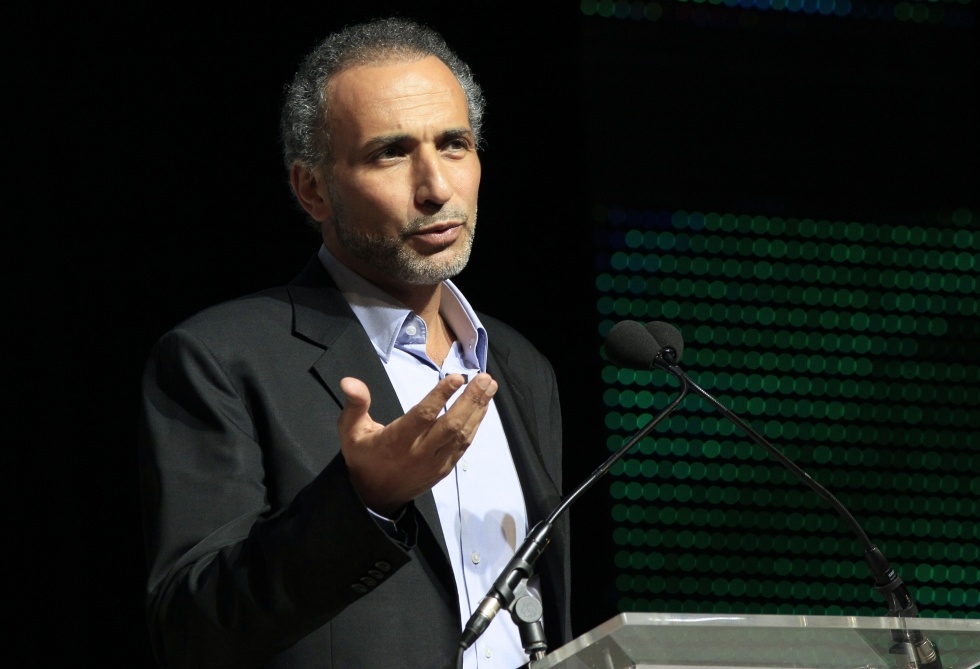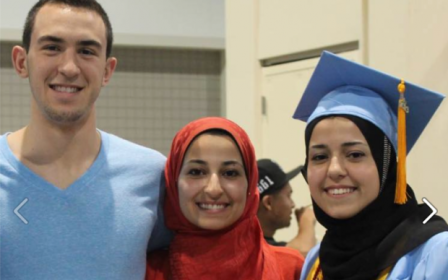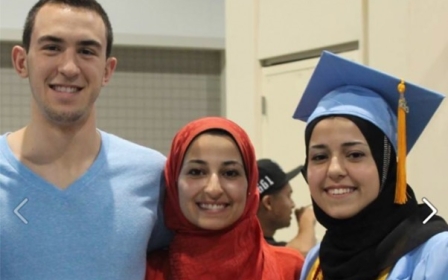Leading Muslim intellectual calls on British Muslims to take pride in identity

In a packed hall of 200 attendees, the Swiss scholar of contemporary Islam, Tariq Ramadan, told his audience on Wednesday evening that Muslims in Britain needed to work for a better future of all UK communities.
Along with co-panellist Anas al-Tikriti, founder and CEO of the London-based think tank, the Cordoba Foundation, Ramadan reiterated his calls upon Muslims in the UK to connect with their identity as British Muslims.
“Muslims should refuse to reply to the question: Are you British or are you Muslim?,” said Tikriti.
“Instead, Muslims should assume their responsibility as part and parcel of the fabric of British society,” he said.
These calls come at a tense time for Muslims in the UK.
With several British citizens joining the Islamic State (IS) in Syria, the unveiling of "Jihadi John" as West Londoner Mohamed Emwazi and after a series of national brawls namely the "Trojan Horse affair," the British government has issued a series of new laws, some of which have raised concerns among Muslim communities in the UK.
The latest of these is the Counter Terrorism and Security Act 2015, codified into a law on 12 February, which includes a controversial set of expectations for schools to work with government agencies to protect against potential terrorists.
The talk titled, “The Future of Muslims in Britain,” organised by the Muslim Association of Britain (MAB), a UK-based organisation that has been active in engaging with the wider British public, especially since the September 11 events and the subsequent 7/7 bombings in London, was meant to address these recent issues.
Instead, the talk took a more conceptual trajectory, repeating calls made by the two speakers for many years.
Ramadan has written many books on European Muslims, where he has encouraged Muslims in the West to take pride in their identity as being European and Muslim, and to adopt the culture of their respective countries without reservation, unless specific aspects clearly clashed with the teachings of Islam.
At the talk, both speakers called on Muslims in Britain and across the Western world to engage with broader issues that affected their respective countries as a whole.
“Muslims need to stop speaking about Muslim issues alone. Instead, they need to start addressing broader issues if they are looking to change the popular narrative about them,” said Tikriti as the crowds applauded him.
Likewise, Ramadan reiterated: “Muslims should refuse to see themselves as victims; they should stop blaming others for their misfortunes.”
“The important thing is moving from a place where you are a citizen because of your passport to being a citizen by culture and identity,” Ramadan said. “It is important that Muslims in Britain feel that they belong and identify with the UK."
Ramandan moved on to say that Muslims must take a proactive role and be at the forefront of finding solutions to the problems the UK and other Western countries face.
“Our [Muslims] contribution is key to the future of this country,” Ramadan said. "Muslims need to understand that they have a responsibility towards their countries and towards solving their problems."
While many messages were positive and focused on encouraging Muslim communities to take greater pride in being British and in addressing the problems facing Britain as a whole, the talk also carried messages of deep concern.
“We [Muslims in the West] used to see the UK as a place where Muslims are accepted more than in others places. But since 7/7 when Tony Blair said, 'The rules of the game have changed' things have been different,” said Ramadan.
Likewise Tikriti said: “A real threat is coming, handing over power to people who speak in racist terms will be to the detriment of all of the UK.”
Condemnation of self-isolation expressed by the speakers during their talks were balanced by thoughts on alienation by their co-citizens as well as a call for standing united in the face of division.
“While Muslims in the West are considered citizens on paper, within the discussion of citizenship and belonging, [Muslims] are seen as the ‘other’,” said Ramadan.
Malik bin Nabi, an Algerian intellectual who writes against French colonisation once said: “We were colonised because we were colonisable,” said Ramadan.
"Likewise we are divided because we are divisible,” he added referring to the Sunni-Shiite divide among Muslim communities.
“If we don’t manage our diversity we will end up divided."
On the topic of Islamophobia, Ramadan said: “Fighting against Islamophobia and racism is not for the sake of Muslims alone, it is for the sake of everyone in this country and for the sake of maintaining a pluralism in the UK.”
He went as far as claiming, however, that Islamophobia was not only nurtured by local groups, but was linked to groups with an international agenda and potentially even linked to Zionists.
Middle East Eye propose une couverture et une analyse indépendantes et incomparables du Moyen-Orient, de l’Afrique du Nord et d’autres régions du monde. Pour en savoir plus sur la reprise de ce contenu et les frais qui s’appliquent, veuillez remplir ce formulaire [en anglais]. Pour en savoir plus sur MEE, cliquez ici [en anglais].




